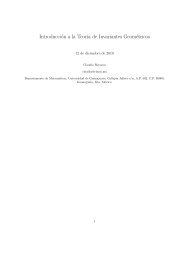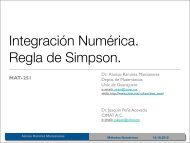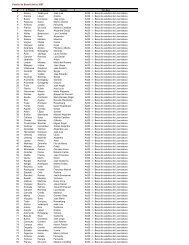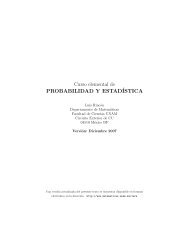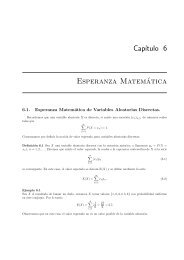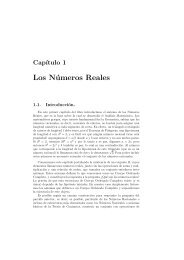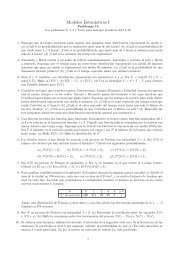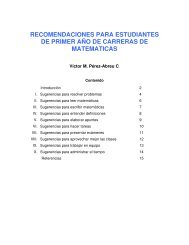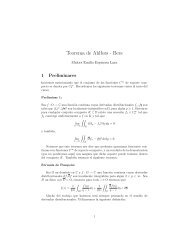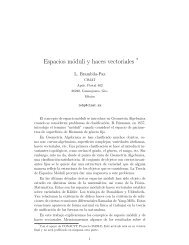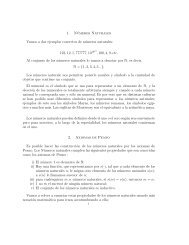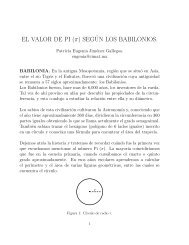Tutorial de Apuntadores y Arreglos en C - Cimat
Tutorial de Apuntadores y Arreglos en C - Cimat
Tutorial de Apuntadores y Arreglos en C - Cimat
Create successful ePaper yourself
Turn your PDF publications into a flip-book with our unique Google optimized e-Paper software.
void bubble(int *p, int N);<br />
int compare(void *m, void *n);<br />
int main(void)<br />
{<br />
int i;<br />
putchar('\n');<br />
}<br />
for (i = 0; i < 10; i++)<br />
{<br />
printf("%d ", arr[i]);<br />
}<br />
bubble(arr,10);<br />
putchar('\n');<br />
for (i = 0; i < 10; i++)<br />
{<br />
printf("%d ", arr[i]);<br />
}<br />
return 0;<br />
void bubble(int *p, int N)<br />
{<br />
int i, j, t;<br />
for (i = N-1; i >= 0; i--)<br />
{<br />
for (j = 1; j *n1);<br />
}<br />
Observa que, al hacer esto, <strong>en</strong> compare() tuvimos que introducir la conversión <strong>de</strong>l puntero void pasado, al tipo<br />
<strong>de</strong> datos que realm<strong>en</strong>te se está or<strong>de</strong>nando. Pero, como veremos más tar<strong>de</strong>, eso está bi<strong>en</strong>. Y ya que lo que se<br />
está pasando a bubble() es aún un puntero a un arreglo <strong>de</strong> <strong>en</strong>teros, tuvimos que convertir esos punteros a<br />
punteros sin tipo cuando los pasamos como parámetros <strong>en</strong> nuestra llamada a la función compare().<br />
42



